‘I didn’t want to surrender to the extremists’: The female tour guide showcasing Afghanistan’s beautiful side
In a country where women are banned from talking loudly in public and even looking out of the windows, one of the few female tour guides in Afghanistan, Fatima Haidari, tells Tamara Davison why she continues to share the natural paradise of her birthplace remotely from Italy after claiming asylum
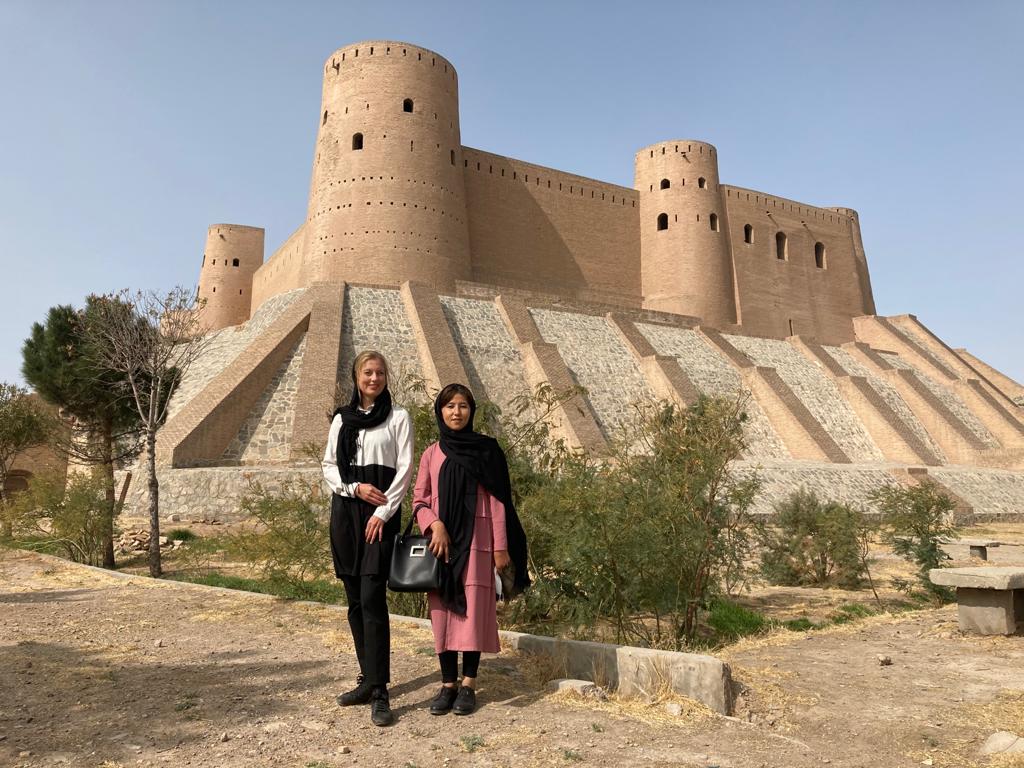
As Taliban fighters closed in on Herat, the third largest city in Afghanistan, in 2021, Fatima Haidari was faced with one of the hardest decisions of her life. Recognised as Afghanistan’s first female tour guide, she was used to being challenged about her work – but this was different.
It wasn’t the first time that the Taliban had been in control, and those who lived through the first government between 1996 and 2001 knew all too well what their return meant. As a prominent figure in Afghanistan, Fatima’s life was in immediate danger – not only because she was an independent woman but also because her work showcased Afghanistan’s heritage to the world.
“I didn’t want to leave at first because my parents, my family, everybody, and everything I had was there in Herat,” the 26-year-old guide says. But her friends begged her to leave while she could, warning Fatima that if she was caught “they not only would kill you – but also your loved ones”. On 21 August 2021, less than a week after the Taliban reclaimed power, Fatima fled to Italy.
It’s been almost four years since the Islamic fundamentalist group regained control of Afghanistan after US forces withdrew. Initial hopes that the regime would be less oppressive were dashed when top Taliban officials – who the International Criminal Court (ICC) recently planned to seek arrest warrants for – enforced strict and brutal interpretations of Sharia law almost immediately.
The rights of Afghan women and girls have been obliterated this time. First, it came in the form of bans on secondary education and the closure of beauty salons – but it’s since become more and more extreme.
The female population of Afghanistan, around 15 million women, have been prohibited from parks, banned from healthcare training and restricted from being heard speaking loudly in public. The Taliban continues to erase womanhood from their culture: one of the latest policies banned windows overlooking places where a woman might be seen.
“I’m one of the very, very fortunate women from Afghanistan who was able to leave the country,” Fatima acknowledges, having been able to build a home in Milan after claiming asylum in Italy.
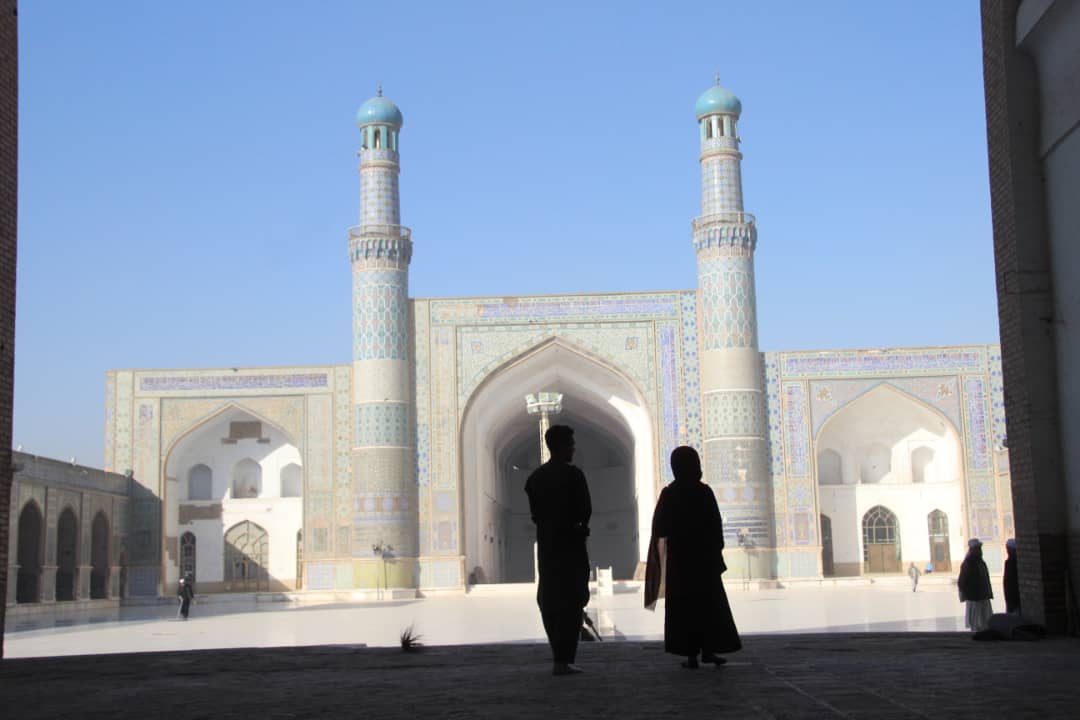
Fatima has also found an interesting way to continue advocating for the cultural preservation of her country and its women from exile, even though she’s thousands of miles away. Supported by adventure tour company Untamed Borders, Fatima runs remote tours in an attempt to showcase what Herat and central Afghanistan have to offer from afar. In the tours, she weaves Afghanistan’s rich history with experiences of growing up as a woman painting a unique and deeply personal depiction of the central Asian country.
Read more: Afghanistan is surprise top holiday destination for 2024, says travel company
“I just didn’t want to surrender to what the Taliban is doing out there,” Fatima says, the one-hour remote tours serving as an act of rebellion in themselves.
During the virtual gathering, guests can learn directly from Fatima about what life is really like in Afghanistan. They may be guided around Herat Citadel, the spectacular Blue Mosque, and the old bazaar while learning about tea culture, traditional music and poetry. On her alternative tour, guests are taken around central Afghanistan, travelling through the highlands between Kabul and Herat and discovering Afghan heritage and the city of Bamiyan, which Fatima describes as “like a paradise”.
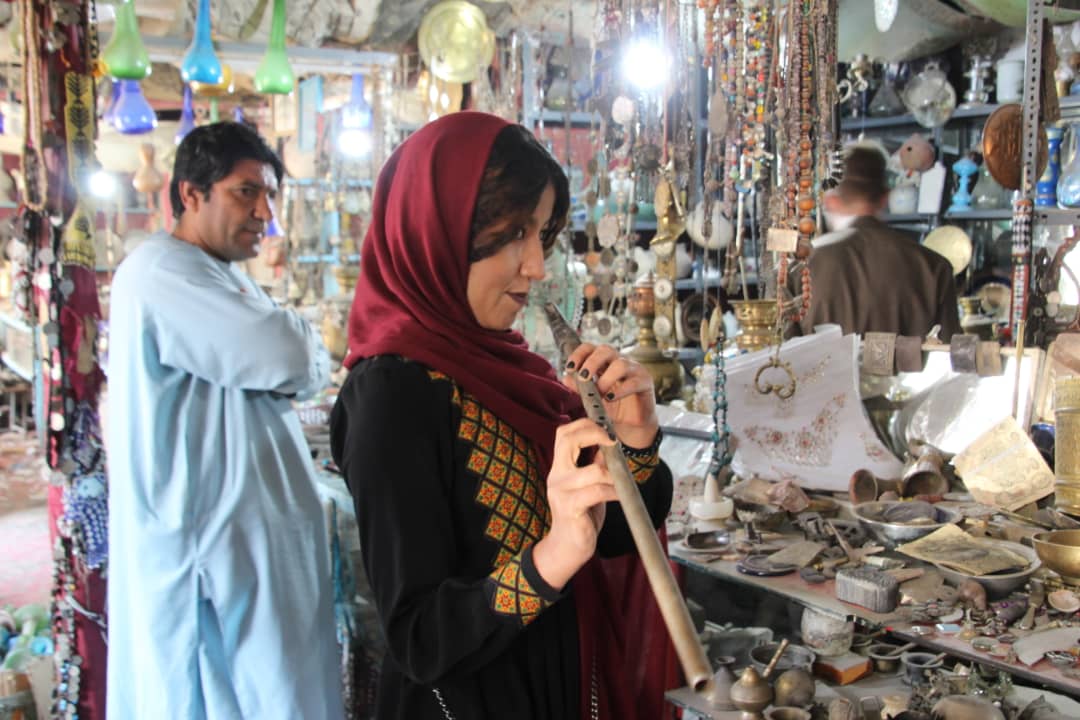
Of course, Fatima’s work in tourism didn’t start in exile, and memories of growing up in Afghanistan also shape the stories she shares during virtual tours. Even before the Taliban returned, life had been challenging, she reveals. Threats regarding her work as a tour guide before 2021 weren’t uncommon, and she was forced to dress in long black clothes to detract any unwanted attention.
“There weren’t a lot of women in Afghanistan guiding tours, and it was a very challenging job for women to be doing because there are people who still lived with the mindset that Taliban left 20 years ago,” she recalled. “I felt the pressure and restrictions,” she adds, “because I was a target for extremists.” However, the benefits she gained from welcoming people to her country before the Taliban returned outweighed the security risks. Working as a tour guide helped her learn about other countries and nationalities, build connections and make friends worldwide, despite being unable to travel herself because of Afghanistan’s weak passport.
Read more: Weird and wonderful discoveries in Tashkent – six places you should visit in the Uzbek capital
Though Fatima can no longer guide in person, she’s also closely watched how tourism is surprisingly evolving under the Taliban. According to AP, foreign visitors to Afghanistan actually rose from 691 in 2021 to 7,000 in 2023, suggesting a small but growing demand for in-person visits to the country. Fatima hopes that one day Afghan women can once again guide travellers from the place they call home, but for now, the remote tours fill a unique space for tourism in more off-beat or dangerous locations.
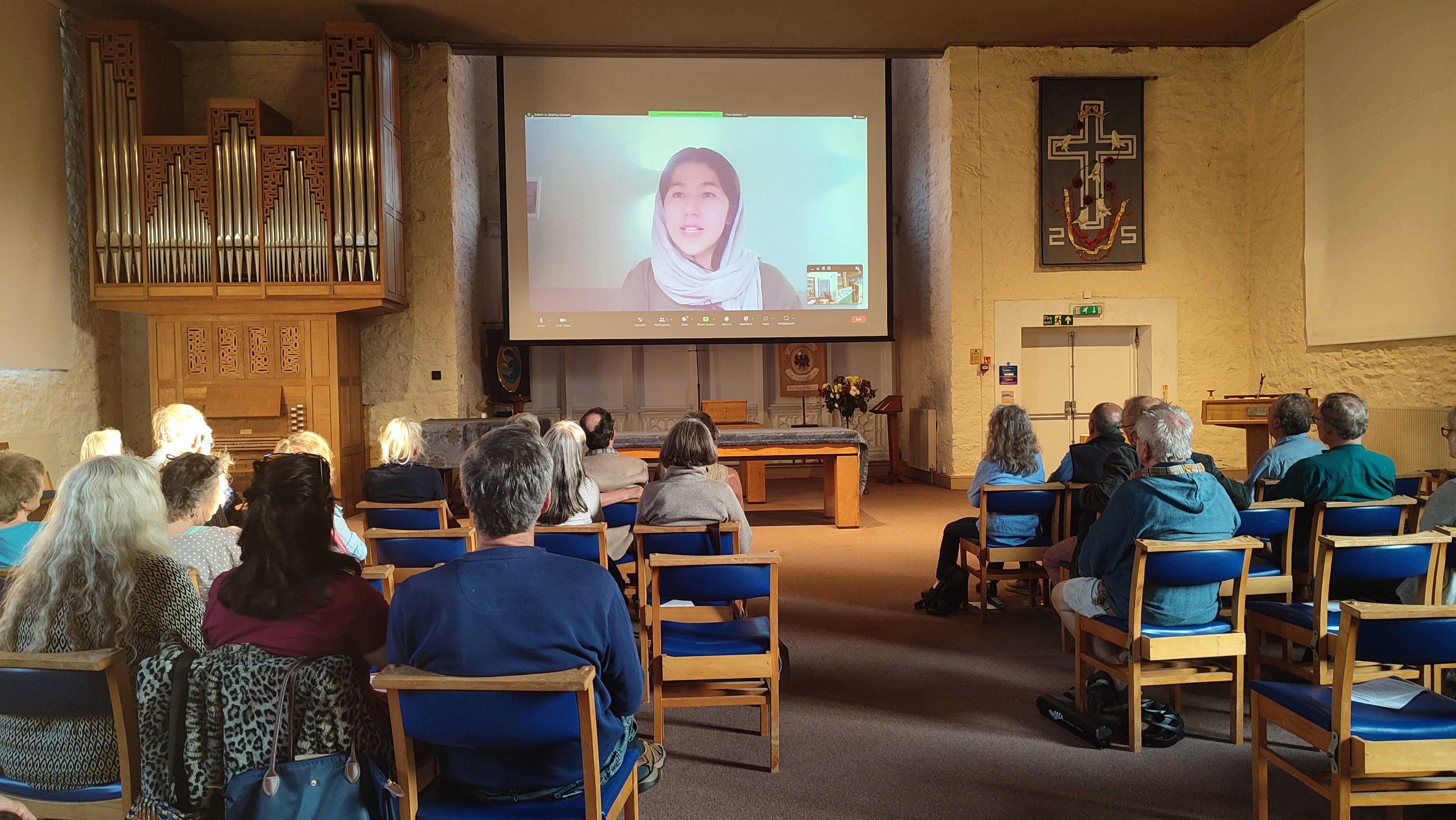
Remote tourism seldom makes up for seeing a place in real life, but virtual tours have become more mainstream since the Covid pandemic. “We get to use technology to teach people about the countries they dream to travel to but cannot,” she explains, adding it’s a nice alternative for elderly visitors or those who can’t afford adventurous travel.
For Fatima, the remote tours are all the more powerful as they provide a safe space for her to share an unfiltered perspective, allowing people from around the world to hear voices being silenced too often in Afghanistan. “My guests really love hearing women’s stories from someone who’s lived the story,” she says. “And it’s a way for me to defy what the Taliban is doing right now to women in Afghanistan.”
Read more: The Taliban take over Afghanistan’s only luxury hotel
It also gives her a chance to spread awareness about Afghanistan in a way that’s not covered by news headlines. “Afghanistan is not all about terrorists, it’s not all about war – it has a beautiful side,” she notes, acknowledging the juxtaposition of tourism in a country with so few freedoms. “It has a very rich culture, nice people and everything is so diverse. Afghanistan has been the graveyard for empires, but pieces of their culture and history remain and need to be explored positively.”
Not only can Fatima’s remote tours help inform global audiences, they’re also having an impact closer to home.
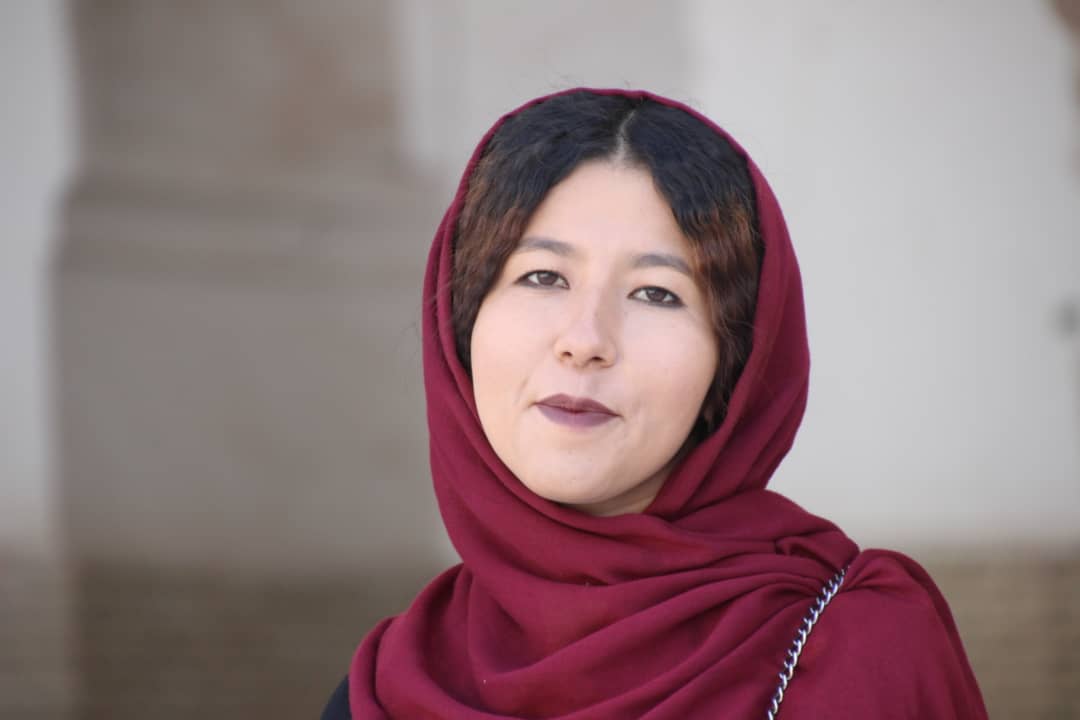
Part of the proceeds from her tours support a girls’ education charity operating in Afghanistan, providing vital funds that provide language classes for Afghan girls. She has also launched an association called Alefba from Italy to further support the girls’ education back home. “One of the biggest reasons Taliban are restricting women is because they’re scared of the power that women in the country hold,” she added, explaining that she remains inspired by the women of Afghanistan and their resilience in the face of such oppression.
Like many Afghans, Fatima also hopes that her nation’s magic and cultural essence will survive long after the oppressive regime. While she loves her adoptive home of Italy, Fatima longs to reunite with her family and, one day, hopes to work on reviving Afghanistan’s tourism from within.”
“I definitely would love to go back to join my family, friends,” she said, hopeful about returning to in-person guiding one day. “My knowledge and insights are more use in Afghanistan.”
Fatima’s next virtual tours will take place on 1 April 2025 and 13 May 2025. Visit Untamed Borders to book your spot
Join our commenting forum
Join thought-provoking conversations, follow other Independent readers and see their replies
Comments